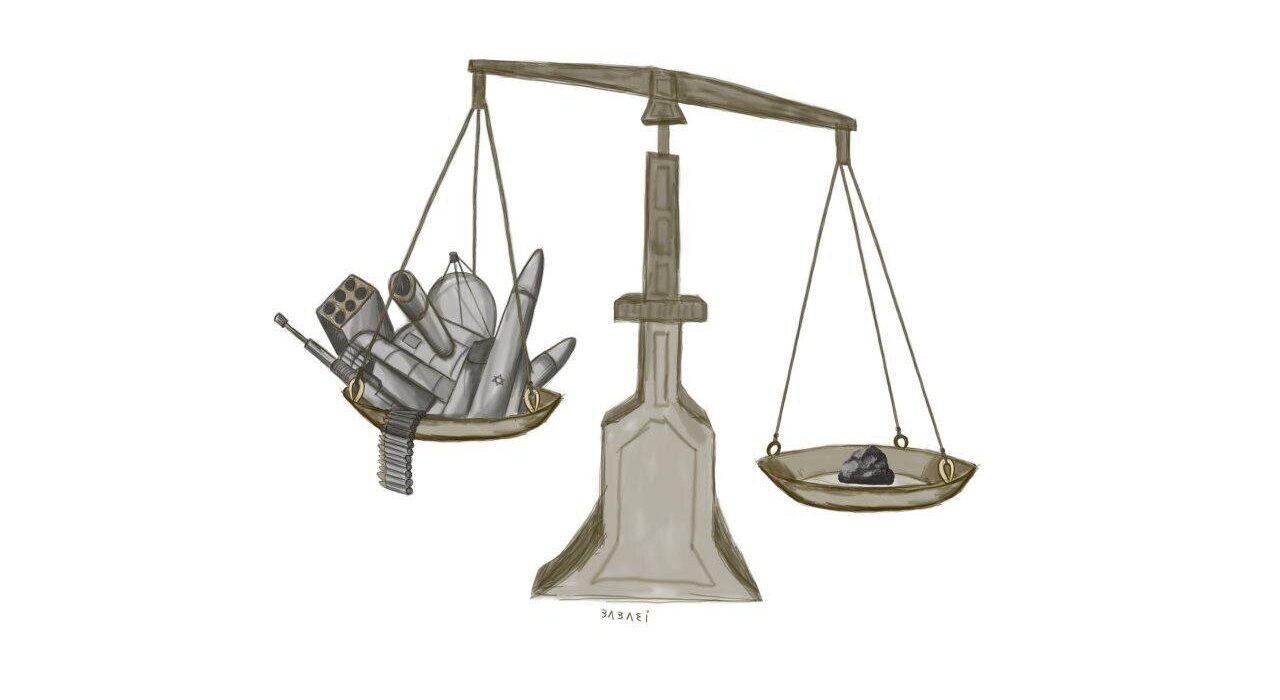TEHRAN- Iranian artist Esmaeil Babaei claimed the first prize at the 20th International Caricature Festival in Damascus, Syria, which concluded on February 13.
Anatoly Radin of Russia secured the second position and Javier Cubero Torres from Cuba clinched the third spot, Mehr reported.
Active in the field of cartoon and caricature for about three decades, Babaei has participated in different contests and won many prizes including a trophy from 5th Cartoon Biennial Tehran 2001, Special Prize at the International Sinop Cartoon Contest Turkey 2012, the first prize at Exchange International Contest in Tehran 2014, an honorable prize at International Contest Jiaksing in China 2015, Honorable Mention at the 10th International Contest Bukharest in Romania 2016, and Special Prize at the International Contest Caneva Ride in Italy 2016 among others.
This year’s edition of the event, dedicated to the Palestinian resistance and the late Palestinian cartoonist Naji Al-Ali, resonated with a global chorus of voices standing against oppression.
The festival, a testament to the power of art as a medium of dissent, garnered participation from artists worldwide. “The wide participation from across the globe reflects the unity of artists in supporting the Palestinian people against the Zionist enemy,” said the festival director Raed Khalil.
“We wanted to convey a message of support to the Palestinian people and the resistance facing the Zionist enemy through the art of caricature, which reveals Israel’s lies to the world’s public opinion,” said the Syrian artist who founded the festival in 2005.
The Syrian Minister of Culture, Lubana Mashouh, considered that the art of caricature unites the world of free peoples against the false and biased policies of Western governments.
Standing as a beacon of unity and resilience, the festival was a poignant homage to the late Palestinian cartoonist Naji Al-Ali, whose works have become a symbol of Palestinian defiance. Al-Ali’s iconic character, Handala, a ten-year-old boy witnessing the Palestinian struggle, continues to be a potent symbol of resistance. The participating artists paid tribute to Al-Ali’s legacy, reinforcing the power of art as a tool for social commentary and change.
In the cacophony of geopolitical conflicts, caricature has emerged as a universal language of protest. The International Caricature Festival in Damascus underscored this power, bringing together artists from diverse cultural backgrounds. Their collective voice resounded with a clear message: the world stands with the Palestinian people in their quest for justice and freedom.
Intense Israeli bombardment from air, land and sea continues to be reported across much of the Gaza Strip, resulting in further civilian casualties, displacement, and destruction of civilian infrastructure. Ground operations and heavy fighting between Israeli forces and Palestinian armed groups also continue to be reported, especially in Gaza’s southern city of Khan Younis.
Since October 7, at least 29,000 Palestinians have been killed in Gaza and over 68,000 Palestinians have been injured.
Airstrikes on Gaza’s southernmost city of Rafah and statements by Israeli officials have heightened concerns about a possible ground invasion in Rafah where well over one million people are crammed amid insecurity and acute shortages of shelter, food, clean water, and medical care.
Population movements out of Rafah toward Deir al Balah and An Nuseirat Refugee Camp have been reported, following intensified airstrikes on Rafah. This is occurring within the context of rising food insecurity, limitations on the entry of aid, the erosion of coping mechanisms, and the prospects of a ground operation in the area. The World Food Program (WFP) has expressed concern that displacement from Rafah would further decrease the resilience of people who have been previously displaced to Rafah in search of safety, and Action Against Hunger warned that it will be forced to suspend its activities if military operations expand to Rafah.
Humanitarian and health workers continue to face enormous challenges and risks to serve people in need of urgent assistance and save lives, particularly given the insufficient materials and supplies that aid organizations are able to bring in, according to the Humanitarian Coordinator ad interim for the occupied Palestinian territory, Jamie McGoldrick.
Damage to civilian infrastructure continues to be reported across Gaza, including residential buildings, schools, hospitals, roads, cemeteries, as well as water and sanitation facilities. In December 2023, UNICEF reported that at least half of water, sanitation and hygiene facilities have been damaged or destroyed in Gaza.
SS/SAB

